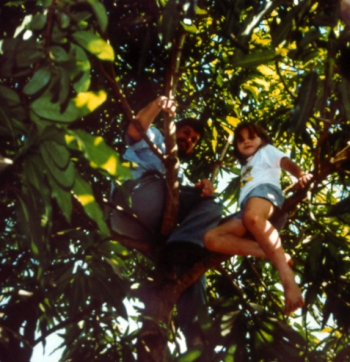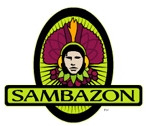Please note that although the SAMBAZON web site features
acaí, cupuaçu is available by special request. Please
also note: I love these fruits, but not everybody does. The flavors are
strong and may seem peculiar at first.
If you like the SAMBAZON
story, you
may be interested in some of my other web pages:
- Rondônia Web
describes my travel and scholarship in the western Amazon basin.
- Music of
the Americas in Global Context is my page about Latin American
music, particularly the music of Brazil, Cuba, and the U.S./Mexico
borderlands.
- Geography
of Coffee describes my interest in fair-trade coffee, and
a field-based course I teach on the subject.
- Cape
Verde is an island nation located off the coast of West Africa.
This page describes a study tour that I am leading there in March 2006,
in which the focus will be strategies for sustainable development.
|

During my first visit to Rondônia
in 1996, I found that most of the friends I made there had fruit trees
in their yards. Nobody believed I would climb this cupuaçu tree
with my young friend Carolina. So of course I did!
|
